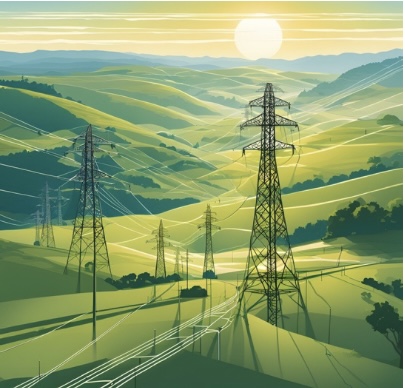National grid collapse has become a common occurrence in Nigeria. This week alone, there have three different instances. Authorities say they have some measures to check it.
The Nigerian Electricity Regulatory Commission (NERC) reported that Saturday’s national grid collapse resulted from a current transformer explosion. This marks the third collapse within a week.
Power generation ceased on Saturday morning around 8:16 AM. The NERC provided updates via social media, stating, “Notes with concern the recent escalating incidence of grid disturbances often leading to marked outage in several states.”
Causes of national grid collapse
The commission explained, “Initial reports on the grid disturbance that occurred this morning indicate that today’s outage was triggered by an explosion of a current transformer at the Jebba transmission station at 08:15 and an associated cascade of power plants shut down arising from the loss of load.”
Despite the disruption, NERC noted that restoration efforts progressed. By 1:00 PM, power was significantly restored in 33 states and the Federal Capital Territory (FCT).
Future measures to check frequent collapse
The statement added, “In line with the provisions of the Electricity Act 2023, the unbundling of the System Operator function (ISO) out of Transmission Company of Nigeria Plc is ongoing.” This aims to improve grid management and infrastructure investment.
NERC plans to conduct an investigative public hearing soon. This hearing will identify the immediate and remote causes of recurring national grid collapse incidents. “The date and venue of the public hearing will shortly be announced in the national dailies,” the statement concluded.
On Saturday, the day of the collapse, power generation peaked at 3,968 megawatts at 7:00 AM but dropped to just 47 megawatts by 9:00 AM. At the time of the incident, allocation to power distribution companies stood at 0.00 megawatts. This follows previous trips on Monday and Tuesday while restoration efforts were underway.
The implications national grid collapse
National grid collapse incidents in Nigeria have significant and wide-ranging effects on the economy, infrastructure, and daily life. To start with, the instability of power supply disrupts business operations, leading to increased costs for companies that rely on generators. This affects productivity and profitability, stunting economic growth. Small businesses, which often lack the resources to invest in alternative energy sources, are particularly vulnerable. The unpredictability of power can deter foreign investment and hinder industrial expansion.
Infrastructure strain and social consequences
Constant power outages place immense strain on existing infrastructure. Facilities such as hospitals, schools, and factories struggle to maintain operations, compromising essential services. Hospitals may face challenges in providing critical care, while educational institutions experience interruptions in learning. This can have long-term effects on public health and education outcomes.
Frequent grid failures can lead to public frustration and unrest. Citizens often face the daily inconvenience of outages, which can disrupt household activities and access to services. This dissatisfaction can erode trust in government and regulatory bodies, prompting calls for accountability and reform.
As businesses and households turn to diesel generators to cope with power shortages, the environmental impact increases. Higher emissions from fossil fuels contribute to air pollution and climate change. This reliance on non-renewable energy sources runs counter to global sustainability goals.

Leave feedback about this